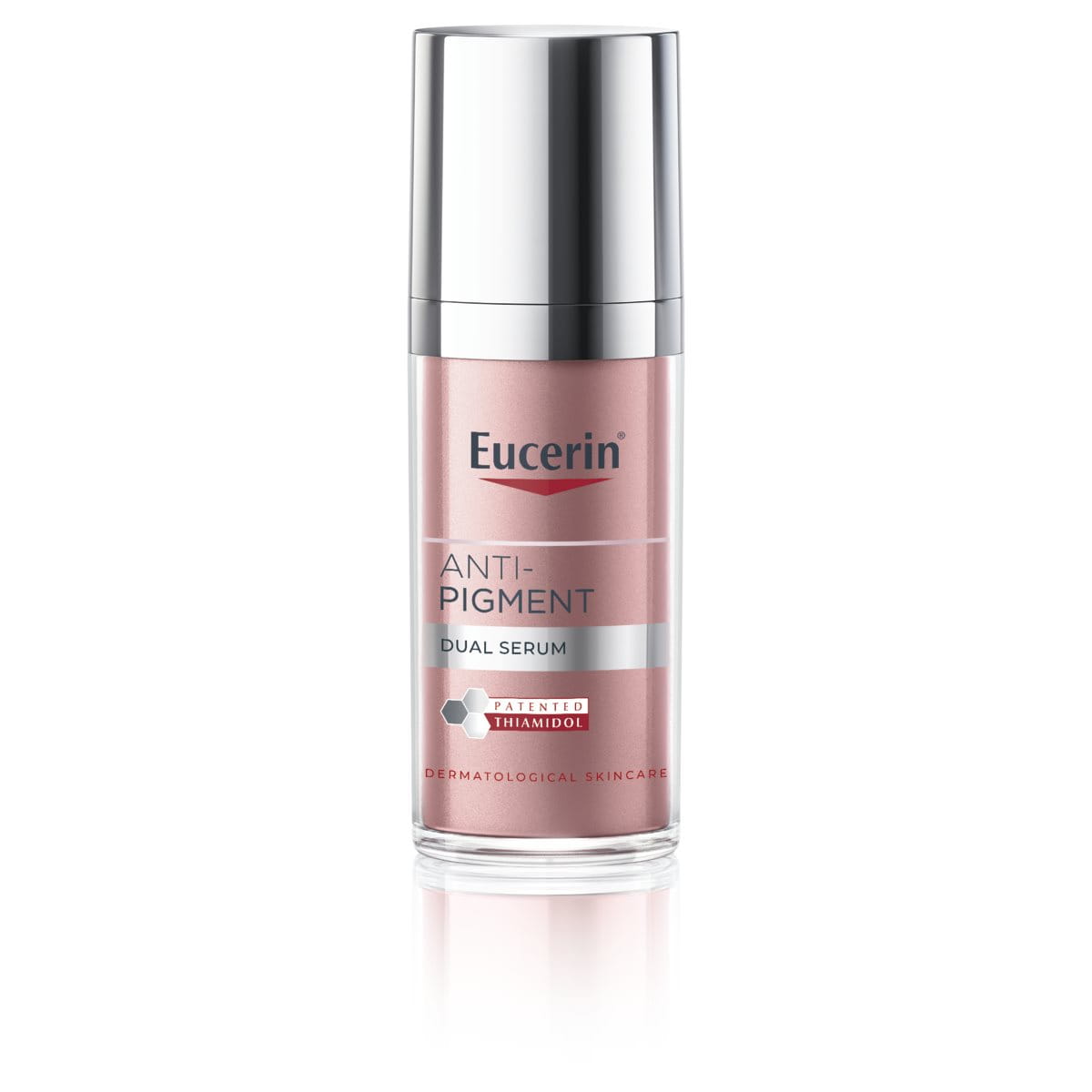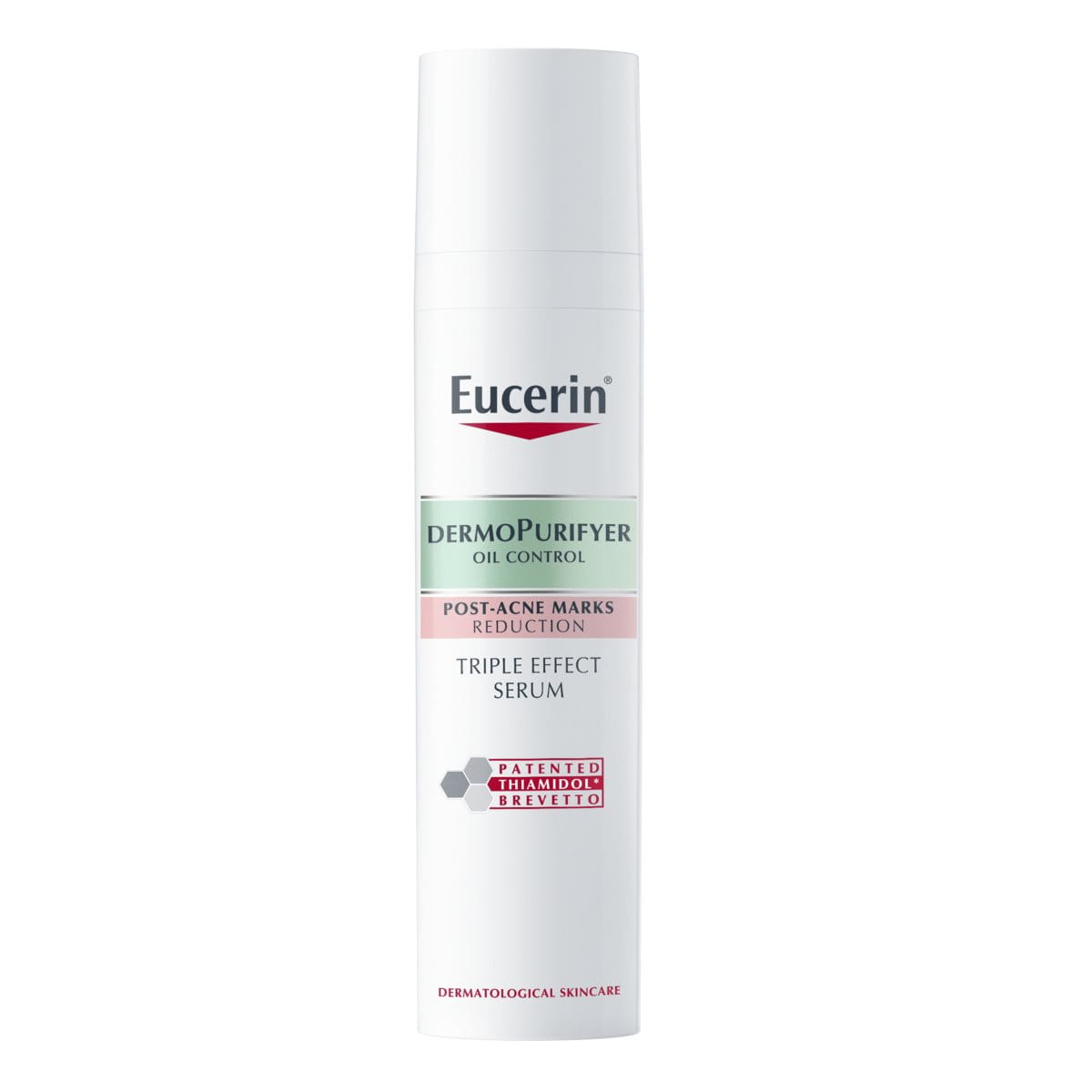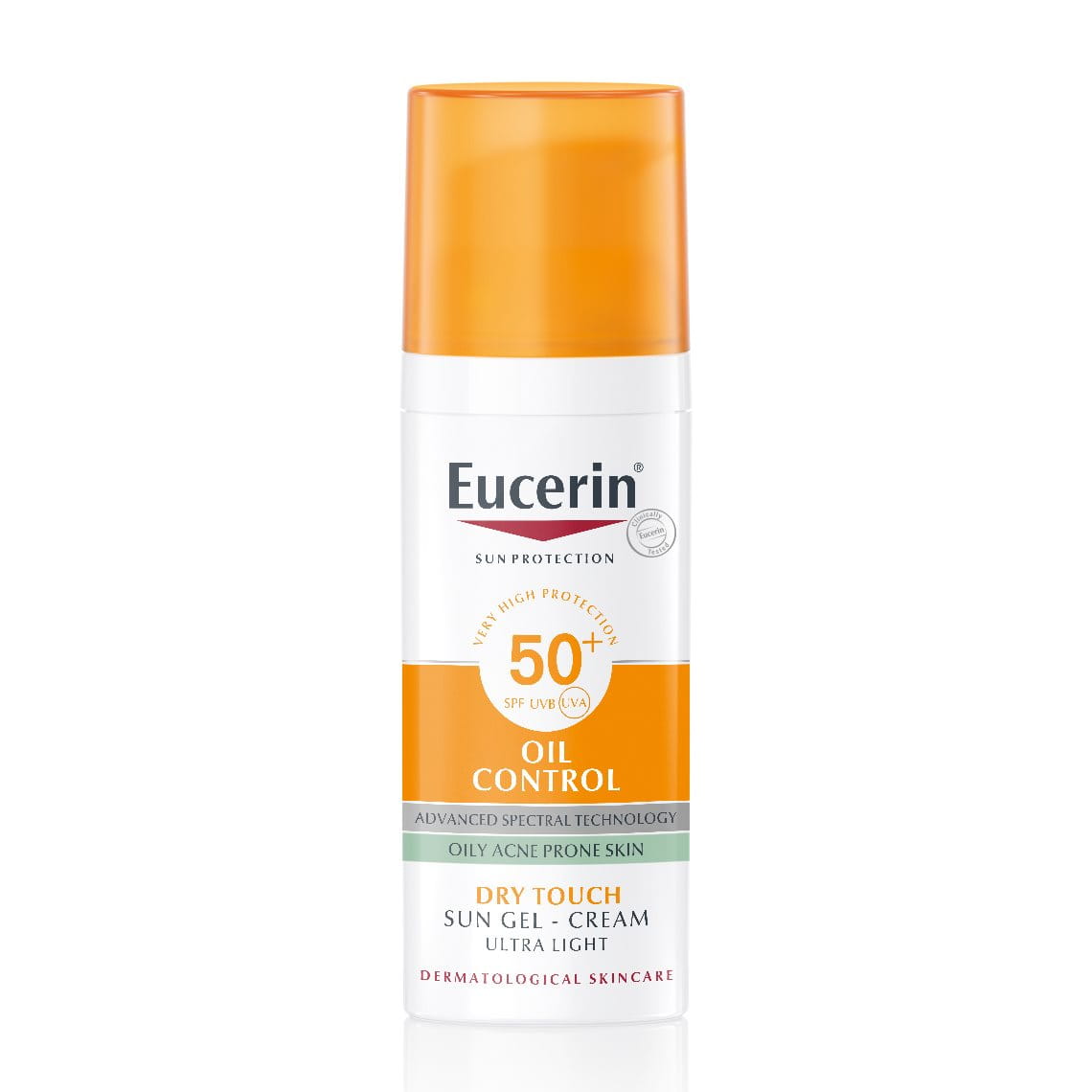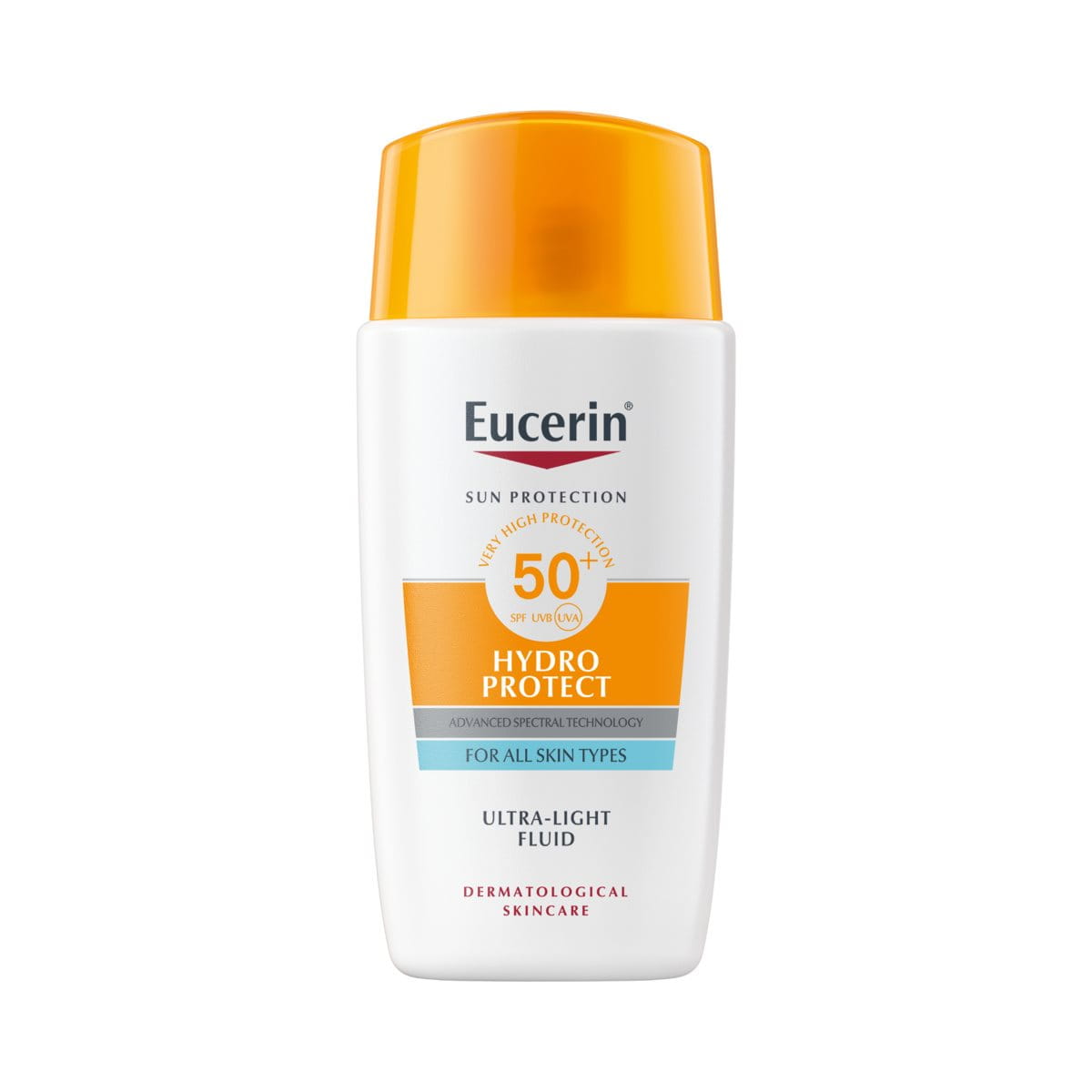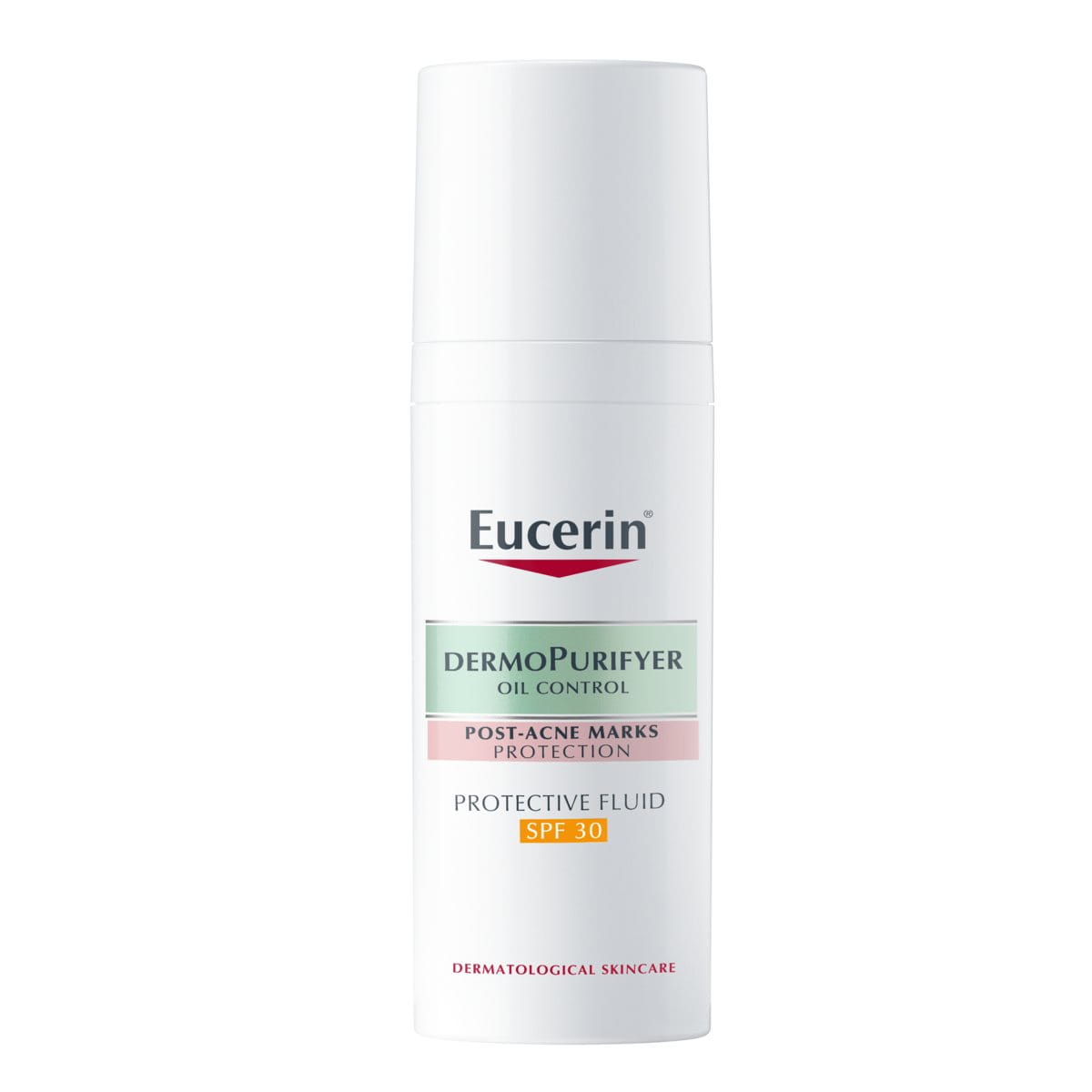Though the benefits of sun protection are clear - to prevent photoageing and decrease your chances of skin cancer - there are some downsides. For those with oily skin, using greasy and heavy sun creams can trigger blemishes. However, that doesn't mean you shouldn't use sunscreen.
All skin needs sun protection, but this article explains why oily and acne-prone skin needs special sun care with a non-comedogenic sunscreen. It looks at how the sun affects acne-prone skin and recommends how to give skin the sun protection and care it needs.
What is oily and acne-prone skin?
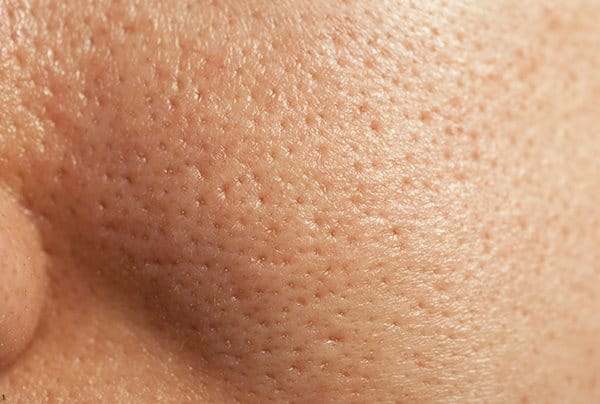
The word ‘oily’ is used to describe a skin type with heightened sebum production. Sebum is produced in skin’s sebaceous glands and is transported to the skin’s surface where it contributes to skin protection. Oily skin is characterised by a glossy shine and enlarged and visible pores. You can find out more about oily skin in skin types and conditions.
Oily skin is prone to comedones (blackheads and whiteheads) and these can lead to acne. Acne is a non-contagious skin condition where pimples appear on the face and frequently on the neck, shoulders, back and chest too.
Best sunscreen for oily skin
Many standard sun creams are suitable for normal to dry skin skin types, and you can read about the Eucerin sun range here. However, if you have oily skin, you’ll want a fast-absorbing, non-comedogenic sunscreen.
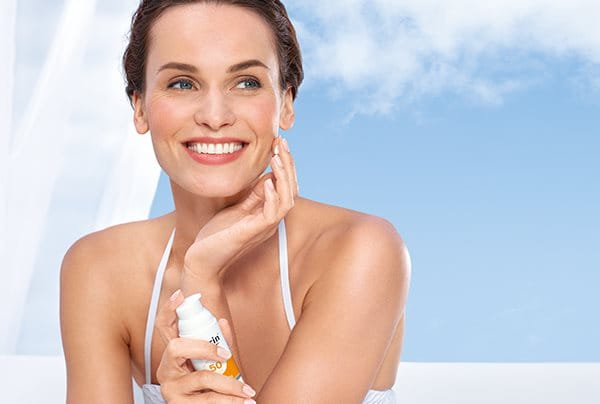
We recommend that you use sun protection products that have been specially formulated for oily and acne-prone skin, such as lotions, fluids or gels.
Choose products:
- with a lighter texture (this doesn’t mean you need to compromise on high protection)
- labelled ‘non-comedogenic’ (a non-comedogenic sunscreen doesn’t contain ingredients that might block pores and trigger blemishes)
- that actively help to address your skin concerns as well as to offer sun protection
- that have been specially formulated for blemish-prone skin and that are clinically and dermatologically proven to be suitable for your skin type.
The Eucerin Sun range includes two sun protection products for oily and blemish-prone skin. These non-comedogenic sunscreens also offer sebum-regulating Oil Control Technology with L-Carnitine too.
Applying a thick coat of SPF to your face may trigger blemishes, but not using any sun cream is dangerous. Thankfully, there are sunscreens for acne-prone skin that won't leave your skin feeling sticky.
Face sun cream for oily skin
Eucerin Oil Control Sun Gel-Cream Dry Touch SPF 50+ provides very high or high UVA/UVB protection and HEVIS light defense for blemish-prone skin. The ultra-light and non-comedogenic formula has a dry matt finish that gives skin a long-lasting (up to 8h) anti-shine effect.
For oily/blemish-prone skin on your body
Use Eucerin Sensitive Protect Sun Spray Transparent SPF 50, which also features our Advanced Spectral Technology. The dry touch formula supports skin’s own DNA repair mechanism. Both products absorb quickly and are non-greasy.
Ensure you apply enough spray to protect your skin, as a light misting won’t do it. Spray enough so your skin is glistening. Learn more in How much sunscreen to use.
How to protect oily skin from the sun
The best way to protect skin is to limit the time spent in the sun, avoid it during its most intense hours, wear protective clothing and apply a superior sun protection product that offers the level of protection that your skin needs. Learn more in How much sunscreen to use.
If you use an acid-based skin peel or resurfacing treatment, such as Eucerin’s highly effective DermoPurifyer Skin Renewal Treatment, it’s important to remember your skin will be even more sensitive to the sun. We recommend you use the product in the evening and ensure you apply a high or very high protection factor the following morning.
If you are undergoing medical treatment be sure to practice ‘safe sun’. Limit the time spent outdoors, avoid the sun during its most intense hours, wear protective clothing and wear a very high protection sun factor even on cloudy days.
- Meeting the highest standards for UVA and UVB protection as defined by Cosmetics Europe. The levels of UVA protection are higher than the EU requirement.
Does sunscreen help acne?
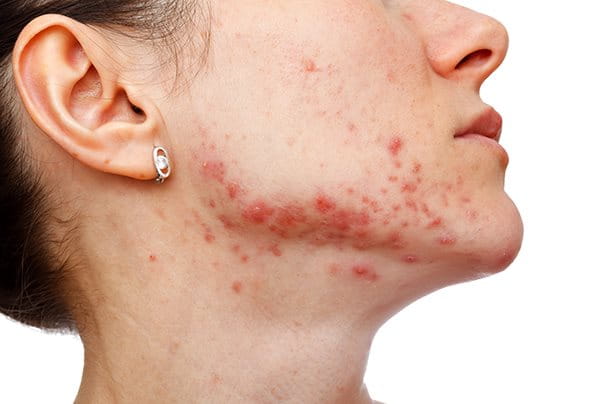
While sunscreen may not be specifically formulated to treat acne, sunscreen prevents skin inflamed by acne from being exposed to the sun's rays. Excessive and/or unprotected exposure to the sun’s rays can exacerbate the causes and triggers of acne, making matters worse rather than better:
- The sun causes skin to dry out and even oily skin needs moisture. When skin dries out the sebaceous glands go into overdrive, and this excessive sebum production is one of the key stages in the formation of blemishes.
- When skin dries out its surface hardens. This interferes with the natural process whereby dead skin cells are shed, leading to blocked pores and blemishes developing.
- The sun also leads to increased sweat production and speeds up the rate at which sweat degrades on skin’s surface. This creates the perfect environment for the bacteria associated with acne to spread.
Not only can exposure to the sun cause acne, it can also exacerbate acne scarring and post-inflammatory hyperpigmentation, as the sun’s rays cause our skin to produce melanin which makes scars darker and more noticeable.
To prevent triggering acne and treating the scars it leaves behind, it is recommended to use a non-comedogenic sunscreen for acne prone skin.
Does sunscreen cause acne?
Generally speaking, sunscreen does not cause acne. However certain ingredients may block the skin’s pores. This is why it is important, especially for those with acne-prone skin, to use a non-comedogenic sunscreen, meaning a sunscreen that won’t block pores and contribute to breakouts.
Why is acne-prone skin particularly susceptible to sun damage?
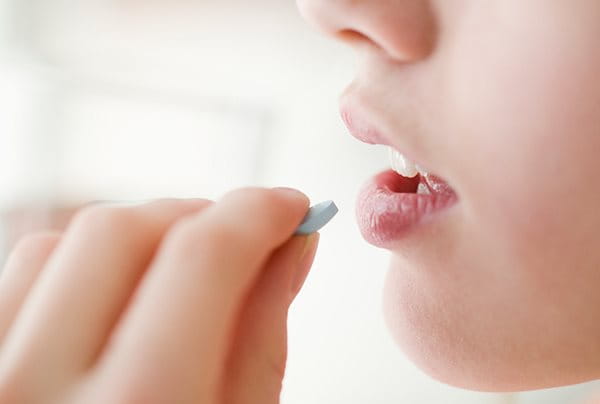
Sun, in moderation is good for us but overexposure to the sun’s rays can cause both short and long-term damage to all skin types including oily skin. You can read more about the positive and negative effects of the sun on skin in How do UVA, UVB and HEVIS light rays affect skin?.
Certain acne treatments and medications − e.g. Benzoyl Peroxide, Tretinoin, Adapalene and Azelaic Acid − also make skin more susceptible to sun damage and increase the need for appropriate sun protection. You can find out more in Acne and medication.
- Meeting the highest standards for UVA and UVB protection as defined by Cosmetics Europe. The levels of UVA protection are higher than the EU requirement.
Our brand values

We deliver a holistic dermo-cosmetic approach to protect your skin, keep it healthy and radiant.

For over 100 years, we have dedicated ourselves to researching and innovating in the field of skin science. We believe in creating active ingredients and soothing formulas with high tolerability that work to help you live your life better each day.

We work together with leading dermatologist and pharmacist partners around the world to create innovative and effective skincare products they can trust and recommend.
